| "We should not underestimate the willingness of Russia to accept pain." - CBS News national security contributor Michael Morell on the history of Russian insurgencies and how long Russia's war in Ukraine may last. Welcome to the "Face the Nation" Five at Five newsletter. Scroll down for your five takeaways from today's broadcast of "Face the Nation with Margaret Brennan" on CBS. Did someone forward you this? Sign-up at cbsnews.com/email. 1. Morell: Russia is willing to "take time" in their invasion of Ukraine 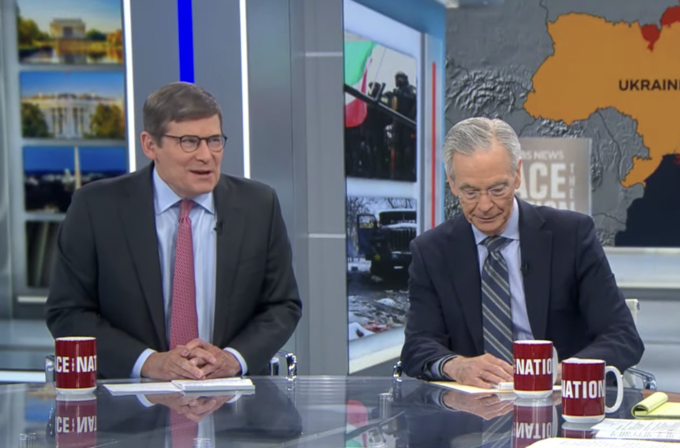
CBS News national security contributor and former CIA deputy director Michael Morell provided a historical perspective to the question of how long Russian President Vladimir Putin's war in Ukraine could last.
What we asked: "Vladimir Putin's pain threshold- how high is that? Or is it the survival instincts of the Ukrainians? How long do you think this takes?" What Morell said: "So, we should not underestimate the willingness of Russia to accept pain. Right? They've shown over their history that they are willing to accept a lot of pain to gain a victory. Right? The Second Chechen War, the combat phase lasted ten months and then the insurgency phase lasted eight years. In Syria, their attacks on cities in Syria took a long time. So they're willing to take the time here in a way that I don't think we understand in the West." Why it matters: There is no clear end in sight more than one month after Russia invaded Ukraine. Nor is there any idea of what Putin's end goal may be. 2. Yovanovitch: 100,000 refugees "doesn't begin" to approach what U.S. should take in 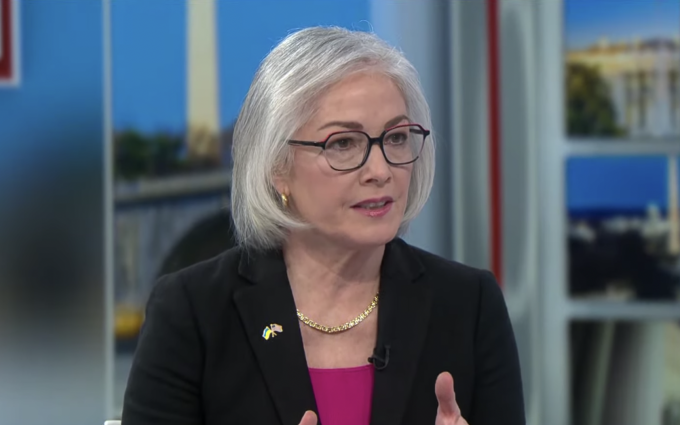
Former U.S. ambassador to Ukraine Marie Yovanovitch discussed the Biden administration's commitment to bringing in 100,000 Ukrainian refugees and how that number plays into the larger picture of the refugee crisis as a result of Russia's invasion.
What we asked: "The 100,000 refugees that Biden said that America would take. How important is that in talking to Europeans who are the ones- I mean, Poland is taking the brunt of the refugees. How important is that in terms of showing that America is pulling its weight, for lack of a better term?" What Yovanovitch said: "I think it's important, but honestly my own opinion is that it's just a start. Because when you've got up to 10 million, just been - perhaps the numbers are even higher this morning - 10 million displaced people out of Ukraine, about 3.5 in Europe, 100,000 doesn't begin to, you know, really start to approach the kind of figures that we're probably going to need to show. That said, though, many Ukrainian people aren't looking to come to the U.S. or even to Western Europe. They want to stay close because they want to go back and rebuild. I mean, it's really inspiring." Why it matters: Russia's attacks on civilian infrastructure in Ukraine have sent more than 3.5 million refugees fleeing into neighboring nations, and the vast majority of them have gone to Poland. 3. Kinzinger is "not convinced" Mark Meadows has handed everything over 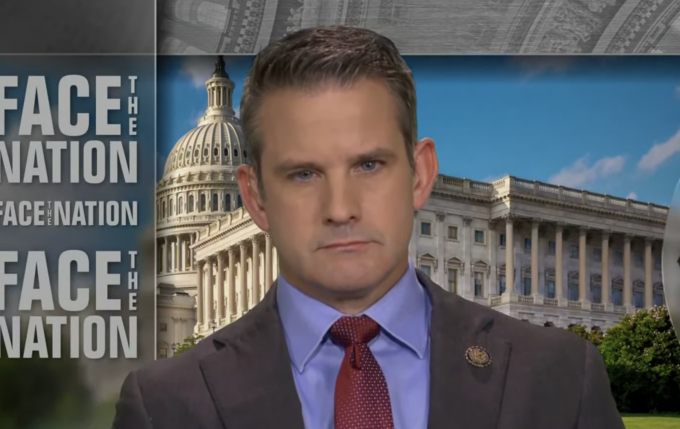 Rep. Adam Kinzinger, one of two Republicans on the House committee investigating the January 6 attack on the Capitol, said Sunday he's "not convinced" that the panel has obtained all relevant material it has requested from Mark Meadows, former President Donald Trump's chief of staff. What we asked: "These texts drop off. They go away in December and January, given the passion with which Mrs. [Virginia] Thomas was texting. Do you- are you confident that Meadows has handed over all of his texts?" What Kinzinger said: "I'm not confident that Meadows handed over everything at all. I mean, he was cooperating with us for a little bit, and then in an attempt to make Donald Trump happy, he stopped cooperating. We gave him plenty of space to come back to resume that. He has not. And in fact, he's waived executive privilege, you know, a thousand times by presenting us what he already has. So, no, I'm not convinced he's handed over everything to us. And that's why it's in the DOJ's hands now, whether to prosecute him for contempt. He has contempt not just for Congress, for his old institution of Congress, and thereby for the American people. I hope DOJ does the right thing and I hope we get all the information that- not- it's not Congress that the American people deserve, John. The American people deserve these answers." Why it matters: Kinzinger's comments come days after the emergence of a series of text messages between Meadows and Virginia "Ginni" Thomas, the wife of Supreme Court Justice Clarence Thomas. The messages show Thomas repeatedly urging Meadows and the White House to fight to overturn the election results in the weeks before President Biden's inauguration. 4. Costa: Ginni Thomas- Mark Meadows texts provide possible "roadmap" to House January 6 committee 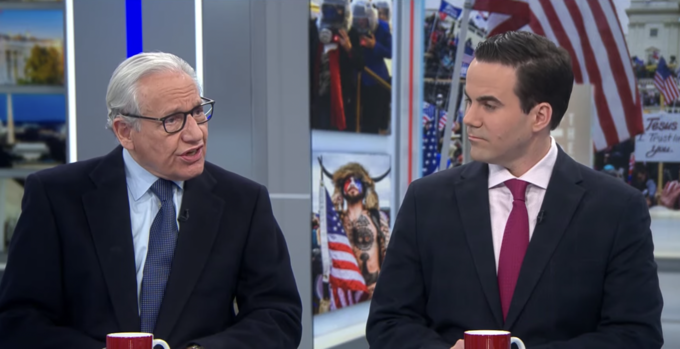 CBS News chief election and campaign correspondent Robert Costa and The Washington Post's Bob Woodward break down their bombshell report about text messages between Virginia "Ginni" Thomas, wife of Supreme Court Justice Clarence Thomas, and former Trump chief of staff Mark Meadows. What we asked: "Bob Costa, I want to get your sense of these texts. Do they give us a flavor for the kinds of things the committee has? What does this tell us about the work of the January 6 committee in terms of putting together this picture of what President Trump was doing and what those acting in his name were trying to do to overturn the election?" What Costa said: " John, your interview with Congressman Kinzinger referenced how they have Mark Meadows' text messages to a point, and they are frustrated that for at least the Thomas exchanges, based on our reporting, they do end in late November. And where are the text messages, if any, from December at or around January 6? But at the same time, it's important to note that based on our reporting that the Meadows text messages do provide, to a point, a roadmap of sorts of some of the things that were being done by the White House chief of staff, then President Trump, during this post-election period. They've also done hundreds of interviews. They have thousands of pages of documents from different people who are cooperating with the committee, but they still feel in many ways they do not have enough. Steve Bannon has refused to cooperate. Mark Meadows has now refused to cooperate. So the question facing that Congressman Kinzinger and others is where's the John Dean - who's going to put the hand in the air and start outlining all of these different facets?" Why it matters: The messages reveal an extraordinary pipeline between Virginia Thomas and then-President Donald Trump's top aide during a period when Trump and his allies were vowing to go to the Supreme Court in an effort to subvert the election results. However, the committee only has messages through the end of November 2020, calling into question if the January 6 committee has enough documentation to provide a complete picture of the leadup of the attack on the U.S. Capitol. 5. Hurd: There is not a GOP "supermajority" blindly loyal to Trump 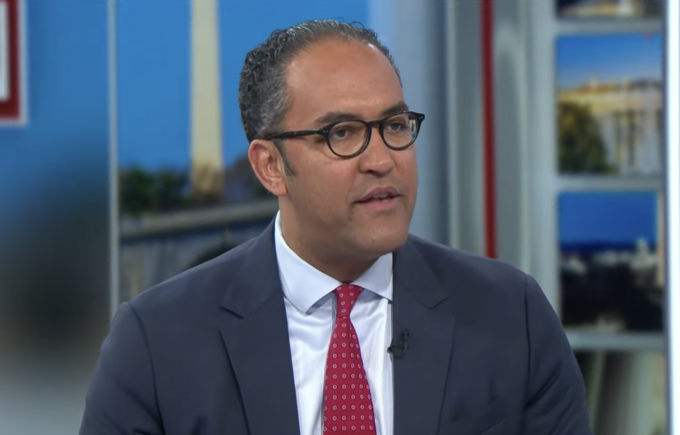 Former Republican Congressman Will Hurd joined to discuss his new book "American Reboot," in which he makes the argument that his party needs to reach out to portions of the electorate that typically don't vote for the GOP. What we asked: "Your argument is essentially the Republican Party has to catch up with where America is going, a constituency different than the one that they support. And you refer back to the Republican autopsy after the 2012 loss. And in that autopsy, they said Republicans have to embrace comprehensive immigration reform. Stop sending the message that we only care essentially about White voters. Donald Trump heard that and said, 'Nuts. I'm going to run the opposite.' And he won. And now, as you say, Republicans are ready to perhaps take over the House and the Senate. That seems like a pretty strong argument against essentially your argument. Are you sure?" What Hurd said: "Well, Donald Trump did win, but then he also lost. He lost the House. He lost the Senate. Right.? And then if we look in 2020, Joe Biden won and he had absolutely no coattails because the public said, hey, we don't like some of these things the Democratic Party is going to. So, yes, a good chunk of the Republican Party is still, you know, blindly loyal to President Trump. But it's not the supermajority. And this is the opportunity that we have and this is where we need to be thinking about this in 2022, when the opportunities that we have in order to grow and improve our electoral successes." Why it matters: How strong is the grip that former President Donald Trump still has on the Republican party? That is a question that still does not have a definitive answer as many members of the party still cater to his wishes, despite his 2020 loss. |